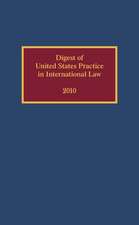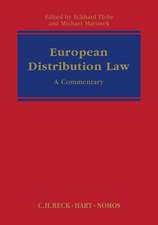Corporate Governance Codes for the 21st Century: International Perspectives and Critical Analyses
Editat de Jean J. du Plessis, Chee Keong Lowen Limba Engleză Hardback – 27 apr 2017
The book is the first comprehensive consideration, since the UK Cadbury Report recommended a voluntary Corporate Governance Code, of the question whether Corporate Governance Codes are the most effective way of ensuring adherence to good corporate governance principles. There is no doubt that the idea of voluntary compliance with good corporate governance practices, based on the principle of ‘comply or explain’, has captured the imagination of the world. It is probably one of the best and most comprehensive examples of ‘self-regulation’ ever seen in any area where the society could be affected significantly, for current purposes by corporations.
However, is this the most effective way of ensuring that corporations act responsibly and adhere to good corporate governance principles? Have these Codes really improved corporate governance practices significantly? Is it time for a rethink and, at least in certain areas, start to rely more on ‘hard law’ and clearer expectations to ensure compliance? All these issues are addressed in the book.
| Toate formatele și edițiile | Preț | Express |
|---|---|---|
| Paperback (1) | 945.92 lei 6-8 săpt. | |
| Springer International Publishing – 18 iul 2018 | 945.92 lei 6-8 săpt. | |
| Hardback (1) | 952.09 lei 6-8 săpt. | |
| Springer International Publishing – 27 apr 2017 | 952.09 lei 6-8 săpt. |
Preț: 952.09 lei
Preț vechi: 1161.08 lei
-18% Nou
Puncte Express: 1428
Preț estimativ în valută:
182.18€ • 190.69$ • 151.63£
182.18€ • 190.69$ • 151.63£
Carte tipărită la comandă
Livrare economică 01-15 aprilie
Preluare comenzi: 021 569.72.76
Specificații
ISBN-13: 9783319518671
ISBN-10: 3319518674
Pagini: 313
Ilustrații: XXIV, 302 p. 3 illus.
Dimensiuni: 155 x 235 x 19 mm
Greutate: 0.64 kg
Ediția:1st ed. 2017
Editura: Springer International Publishing
Colecția Springer
Locul publicării:Cham, Switzerland
ISBN-10: 3319518674
Pagini: 313
Ilustrații: XXIV, 302 p. 3 illus.
Dimensiuni: 155 x 235 x 19 mm
Greutate: 0.64 kg
Ediția:1st ed. 2017
Editura: Springer International Publishing
Colecția Springer
Locul publicării:Cham, Switzerland
Cuprins
Part I: Overview: Jean du Plessis and CK Low, Corporate Governance Codes Under the Spotlight.- Part II: Fundamental Flaws with Self-Regulation Through Voluntary Corporate Governance Codes: Beate Sjåfjell, When the Solution Becomes the Problem: The Triple Failure of Corporate Governance Codes.- Kent Greenfield, No Law?.- Jeroen Veldman, Self-regulation in International Corporate Governance Codes.- Umakanth Varottil, Corporate Governance In India: The Transition from Code to Statute.- Part III: The Specific Aims with Voluntary Corporate Governance Codes: Andrew Keay, An Analytical Study of Board Accountability in Transnational Codes of Corporate Governance.- Gill North, Corporate Sustainability Practices and Regulation: The Existing Frameworks and Best Practice Proposals.- Sandeep Gopalan, From Sustainability to Conflict Minerals: The Creeping Codification of Non-Financial Disclosure.- Barnali Choudhury,Business and Human Rights Obligations on the Continuum of Soft to Hard Law.- Matthias Casper and Niklas Gasse, Delisting Rules in the Context of Corporate Governance – Can the Protection of Shareholders be Effected by a Competition of Listing Rules or are State-made Provisions Required?.- Part IV: A Jurisdictional Analysis of Voluntary Corporate Governance Codes: Irene-Marie Esser, Corporate Governance – Soft Law Regulation and Disclosure: The Cases of the United Kingdom and South Africa.- Ingo Saenger, Disclosure and Auditing of Corporate Social Responsibility Standards – The Impact of Directive 2014/95/EU on the German Companies Act and the German Corporate Governance Code.- Junhai Liu, Globalisation of Corporate Governance Depends on Both Soft Law and Hard Law.
Notă biografică
Jean Jacques du Plessis is Professor of Law at Deakin University, Australia.
Chee Keong Low is Associate Professor in Corporate Law at Chinese University of Hong Kong.
Textul de pe ultima copertă
The book is the first comprehensive consideration, since the UK Cadbury Report recommended a voluntary Corporate Governance Code, of the question whether Corporate Governance Codes are the most effective way of ensuring adherence to good corporate governance principles. There is no doubt that the idea of voluntary compliance with good corporate governance practices, based on the principle of ‘comply or explain’, has captured the imagination of the world. It is probably one of the best and most comprehensive examples of ‘self-regulation’ ever seen in any area where the society could be affected significantly, for current purposes by corporations.
However, is this the most effective way of ensuring that corporations act responsibly and adhere to good corporate governance principles? Have these Codes really improved corporate governance practices significantly? Is it time for a rethink and, at least in certain areas, start to rely more on ‘hard law’ and clearer expectationsto ensure compliance? All these issues are addressed in the book.
Caracteristici
Focus on responsible corporate behavior and how it is achieved Covers some of the most important debates in modern company law, for instance corporate social responsibility (CSR), sustainability reporting, integrated reporting, environmental impact of large corporations, business an human right enforcement through Corporate Governance Codes Discusses whether the use of "soft law" as term is not misleading and diceptive











